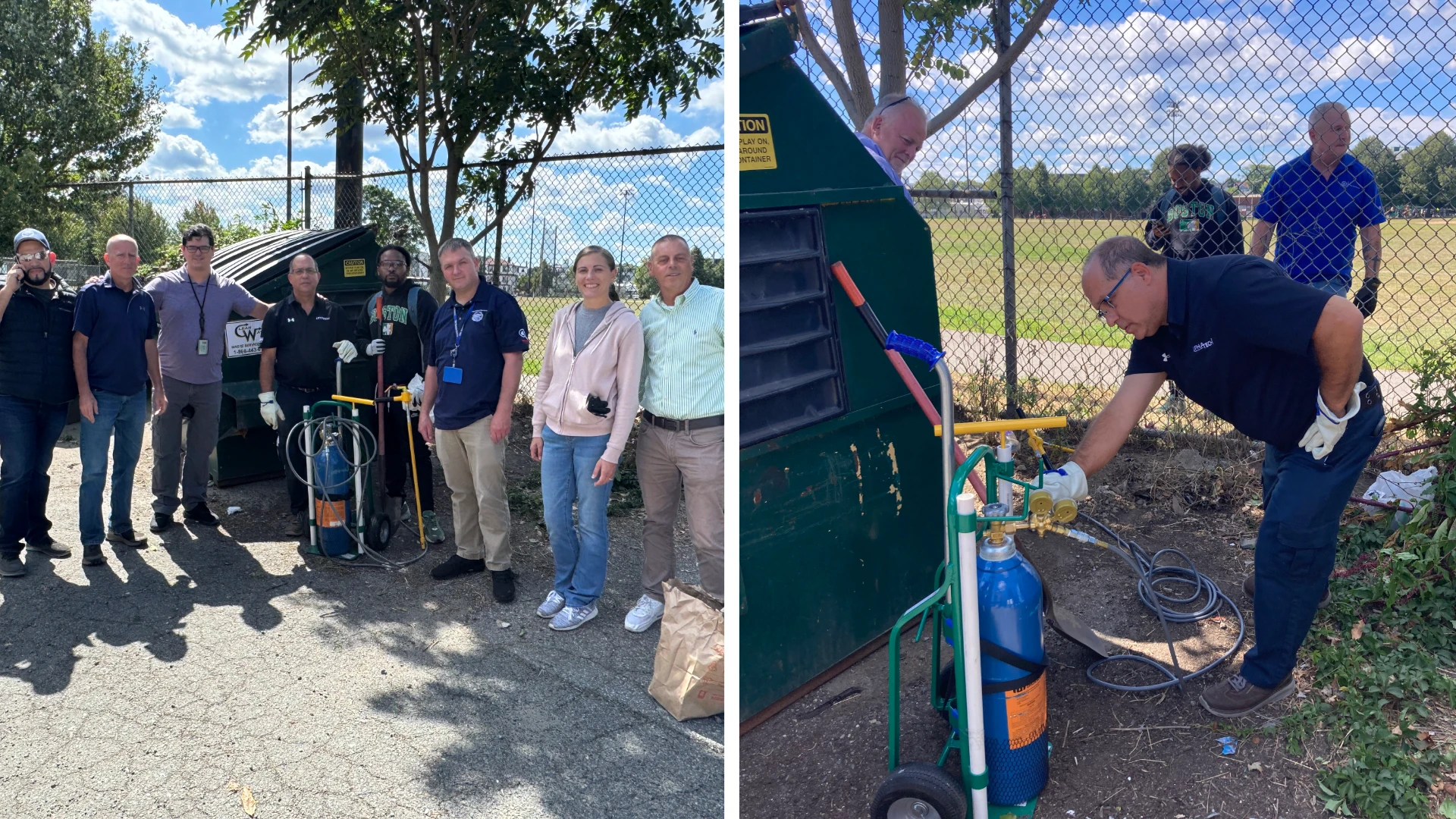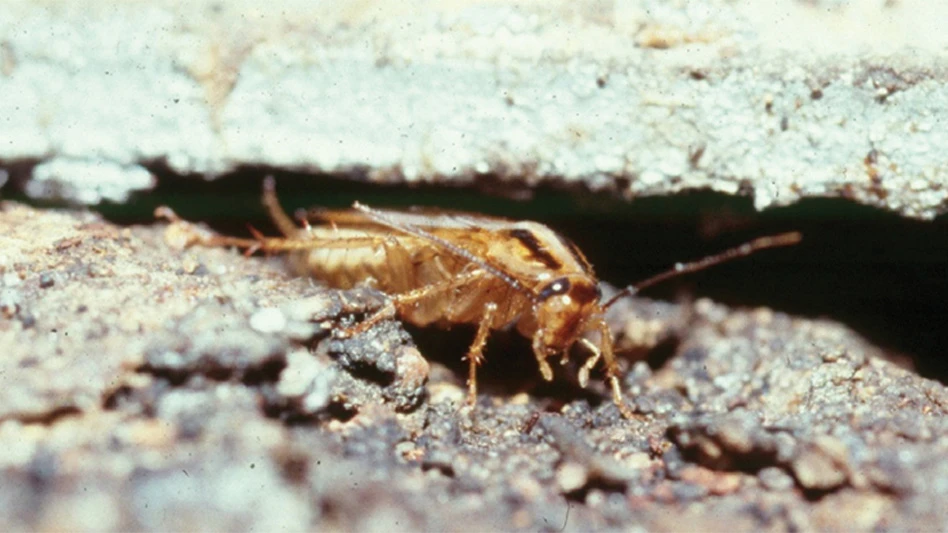
Agri-Turf Tournament Raises $75,000 for the American Cancer Society
SANTA FE SPRINGS, Calif. — Agri-Turf Distributing’s 5th Annual Charity Golf Tournament raised $75,000 for the American Cancer Society. The event was held July 18, at the Tustin Ranch Golf Club in Tustin, Calif. The full tournament started with a shotgun scramble.
Agri-Turf President Rich Records said, “We appreciate the support from our tournament partner, Tri-West Ltd., our customers and suppliers. It is also important to recognize Tustin Ranch Golf Club for hosting a quality tournament. We truly appreciate everyone’s efforts to make this a successful event.”
During the banquet, the check presentation amounted to $72,000, but donations made post tournament brought the final donation to $75,000.
Kristin Strauch, executive director of the American Cancer Society, said of the donation, “We are so grateful to Agri-Turf Distributing, Tri-West and the participants of this tournament. This is an investment in the American Cancer Society. This donation helps save lives by supporting both cancer research, and by assisting cancer patients along their journey.”
The tournament celebrated its first hole-in-one this year. Rob Van Orsdol of Premium Termite and Pest Control, Lancaster, Calif., shot a hole-in-one on the last hole, winning a $10,000 cash prize (see page 58). Nobody was more surprised than Van Orsdol, who said, “I didn’t know why everybody was yelling. I didn’t realize I was on the contest hole until I looked up and saw the sign!”
All event proceeds benefit the American Cancer Society in its efforts to provide funding for leading cancer research, and patient services. Since the tournament began in 2015, the event has raised over $274,000 for the American Cancer Society. Platinum sponsors of this year’s tournament included: Bell Laboratories, Brandt Consolidated, MetroFlor and Paradigm Flooring.
NPMA’s Mosquito Multiplier Shows Just How Quickly Mosquitoes Multiply

FAIRFAX, Va. — The Professional Pest Management Alliance (PPMA), which serves as the public outreach arm of the National Pest Management Association (NPMA), released the results of its new video project — Mosquito Multiplier — to show just how quickly mosquitoes are able to multiply right in your customers’ own backyards. By recreating ideal conditions that allow mosquitoes to thrive, researchers were able to capture the true breeding power of mosquitoes, and the results are a must-see.
“The Mosquito Multiplier project is a visual simulation that’s designed to show homeowners exactly how mosquito populations can explode under the right conditions,” said Jim Fredericks, Ph.D., chief entomologist for the National Pest Management Association. “Our team of experts took mosquito eggs and hatched them under controlled conditions that mimic those you would find in a typical backyard, and in less than a week, we had over 5,000 mosquitoes.”
As PMPs know, mosquitoes thrive in warm, wet areas and only need as little as half an inch of water to breed, turning seemingly innocent items such as kiddie pools, wheelbarrows and overturned frisbees into potential breeding grounds. “To reduce the likelihood of mosquitoes breeding on your yard, conduct a survey of the property at least once a week and eliminate any areas of standing water,” Fredericks urged consumers.
California Restaurant Dares to Put ‘Rodent’ in its Name

OCEANSIDE, Calif. — For most restaurateurs, when it comes to naming their establishment the traditional route is to use terms that have alliteration or perhaps sound appetizing. Restaurateur Davin Waite did just the opposite. He named his popular restaurant Wrench and Rodent Seabasstropub.
While the name may not make one’s mouth water, it does capture people’s attention. In fact, the restaurant was one of the subjects in “Name of Groans: The Search for the Most Truly Awful Restaurant Name in America,” a 2017 feature that appeared on the popular restaurant industry website Eater.com.
Wrench and Rodent Seabasstropub faced off against another quirky fish-centric restaurant, A-Fish-o-na-do, in round one of the competition. Here’s how Eater.com described the matchup.
It’s a bold restaurateur who deliberately puts the word “rodent” in the name of his or her restaurant. And yet the grossest thing in the name of Wrench & Rodent is the monstrous portmanteau (portmonstrosity?) “Seabasstropub.” It’s a gastropub? That serves... sea bass? Maybe only sea bass? Hmm. But all I want to know is: Would a true A-Fish-o-na-do actually call themselves that? Winner: A-Fish-o-na-do.
While Wrench and Rodent Seabasstropub “lost” that competition, the company is winning over patrons. According to its website, Wrench and Rodent Seabasstropub “prides itself on offering locally and responsibly sourced ingredients while taking special care to minimize waste. Menu options range from rolls and nigiri to elaborate sashimi plates and an unconventional omakase.”
It’s proven to be a popular formula. Yelp reviewers have given the restaurant 4.7 out of 5 stars. Here is how one Yelper described their dining experience. “The food here is INSANE! Exciting menu, freshest fish I can imagine and VERY reasonable prices. Our service was phenomenal, extremely friendly staff and the semi punk/alt vibe made for a fun atmosphere.”
So, if you are up for something different try Wrench and Rodent Seabasstropub, located at 1815 S Coast Hwy., Oceanside, CA 92054. — Brad Harbison
Flies are Most-Searched Pest in California Market
MOUNTAIN VIEW, Calif. — Flies, ants, and mosquitoes caused the most widespread problems among U.S. households, according to a recent study by Organic Lesson.
The three insects were identified as the top-searched pests across 41 states, and they also accounted for 34% of total do-it-yourself pest control searches in the United States.
The study analyzed Google’s search interest data of 30 common household pests and rodents including flies, ants, bed bugs, mosquitoes, fleas, mice, and cockroaches. The study specifically focused on pest control searches with a DIY intent, such as “bed bug remedies,” “mosquito traps,” and “how to get rid of fruit flies.”
In analyzing data from California, the top searched pest was (insert drum roll)...flies.

Dr. Chow-Yang Lee Joins UC-Riverside Entomology Team

RIVERSIDE, Calif. — Acclaimed entomologist Dr. Chow-Yang Lee recently joined the University of California Riverside Department of Entomology as Endowed Presidential Chair in Urban Entomology. His official start date was July 1.
Lee said he was excited about the opportunity to join the storied department, which rose to prominence under the late urban entomology pioneer Dr. Walter Ebeling, and whose tradition was carried on by Dr. Mike Rust and research associate Don Reierson.
In his position at UCR, Lee serves as a mentor to graduate students and post-doctoral researchers; teaches courses related to urban entomology and insect toxicology; and interacts with pest management professionals and related stakeholders in urban pest management.
“My research direction will continue to center around the behavioral, ecological, and physiological adaptations of urban insect pests, especially understanding how these adaptations help them to thrive in the urban environment and their biological trade-offs,” he said. “I am also interested in the roles of human activities and propagule pressure in invasion history of urban insect pests. Using the research findings obtained, my students and I design, evaluate, and integrate multiple management tactics to provide a system-level approach towards urban pest management.”
Lee added that one of his short-term goals (5-7 years) is to elevate the level of interaction between the UCR urban entomology program with pest management professionals in the U.S. and around the world.
Lee comes to UC-Riverside from the Universiti Sains Malaysia where he performed a broad spectrum of applied research and studied insect toxicology. Lee said his greatest accomplishment at that institution was “helping to train many students who later went on pursuing successful careers in academia, industry or their own pest management companies,” including many that were first-generation college graduates from underprivileged upbringings. He also said he was proud to have been “a driving force who has made an impact on the pest management industry in Southeast Asia through my research findings and training of pest management personnel.”
In 2018, Lee was one of three editors — along with Dr. Dini Miller and Dr. Stephen Doggett — of “Advances in the Biology and Management of Modern Bed Bugs,” which is a comprehensive scholarly examination of bed bugs. — Brad Harbison
UCR Researchers Report Progress Controlling Mosquitoes with Bacteria
RIVERSIDE, Calif. – Researchers at UC Riverside have identified a neurotoxin that isn’t harmful to any living thing except Anopheles mosquitoes. They plan to use it in developing a bacteria-based Anopheles insecticide.
About 30 years ago, scientists identified a strain of bacteria that kills Anopheles. Since the bacteria’s method of attack was not understood, it couldn’t be replicated or used as an alternative to chemical insecticides — until now.
It took the team, led by Sarjeet Gill, a professor of molecular, cell and systems biology at UC Riverside, 10 years to achieve a breakthrough in understanding the bacteria. Gill attributes the success to modern gene sequencing techniques. The team hit the bacteria with radiation, creating mutant bacterial strains that could not produce the toxin. By comparing the nontoxic strain to the one that kills Anopheles, they found proteins in the bacteria that are the keys to toxin production. The work is detailed in a paper published in Nature Communications.
“Identifying the mechanisms by which the bacteria targets Anopheles has not been easy,” Gill said. “We were excited not only to find the neurotoxin, called PMP1, but also several proteins that likely protect PMP1 as it’s being absorbed in the mosquito’s gut.”
Members of Gill’s team include postdoctoral scholars Estefania Contreras, Jianwu Chen, Harpal Dhillon and Nadia Qureshi, as well as graduate students from UC Riverside and other institutions. Their work was funded by the U.S. National Institutes of Health.
The researchers have applied for a patent on this discovery, and now hope to find partners that will help them develop their bacteria-based Anopheles insecticide.
Visit Pi Chi Omega at PestWorld

WEST LAFAYETTE, Ind. — Pi Chi Omega, the pest control industry’s national fraternity, will be exhibiting at NPMA PestWorld (booth #1051), Stop by and take the Pi Chi Omega Ultimate Insect ID Challenge! Bring your insect identification skills and your bravery — in addition to naming several different species of insects, you may opt to go for the bonus round and blindly stick your hand in a box to identify the insect inside. “If you loved the Pi Chi Omega Ultimate Insect ID Challenge at PestWorld 2018, wait until you see what we have in store for you this year,” said Pi Chi Omega.
California Rat Population Exploding, New Report Claims
SAN DIEGO — A report released in July by Reform California, the political action committee of former San Diego Councilman Carl DeMaio, says a survey of 23 rodent control companies across the state shows sharp increases in rat populations everywhere.
According to the report, more than 78 percent of the companies reported an increase of at least 50 percent, and 43.6 percent reported an increase ranging from 76 percent to more than 100 percent. No companies reported decreases.
In the Reform California report, the panel of experts said the spikes they have seen in rat populations are likely related to increased homelessness, because storing food and going to the bathroom outdoors helps rats flourish.

Explore the Convention Extra Issue
Check out more from this issue and find your next story to read.
Latest from Pest Control Technology
- In Memoriam: Joe Cavender
- Liphatech Adds Alex Blahnik to Technical Team
- Do the Right Sting: Stinging Insect Identification, Management, and Safety
- VAGA's 8th Annual Veterans Thanksgiving Appreciation Dinner
- Clark's Blair Smith on the Response to Increased Dengue Fever Cases in Southern California
- WSDA, USDA Announce Eradication of Northern Giant Hornet from U.S.
- Ned’s Home Acquires Ultra Safe Pest Management
- Bed Bugs & Dirty Clothes





